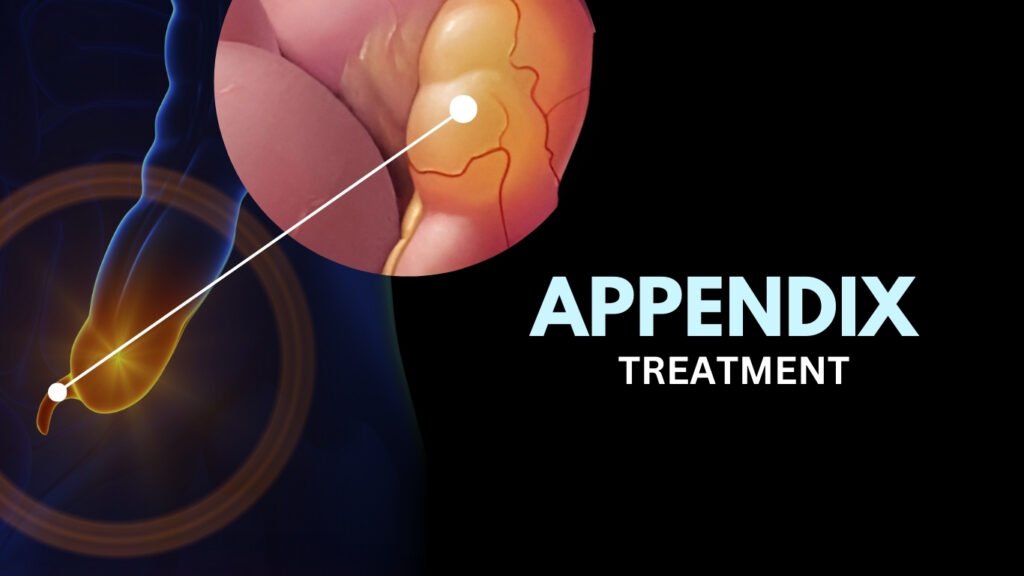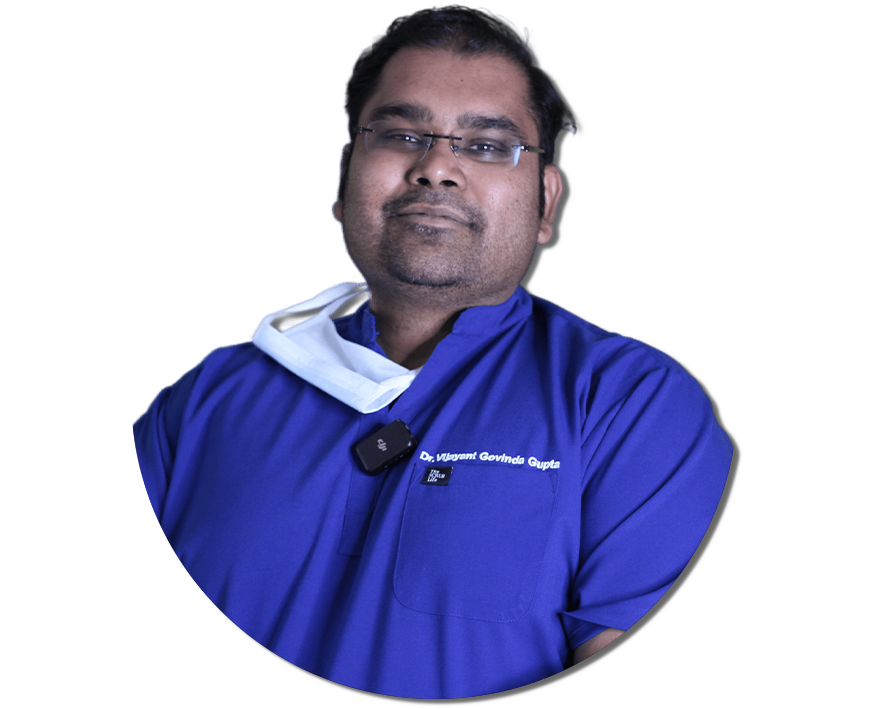
Appendix Surgery In Delhi, India
If you have strong pain in your stomach—especially on the lower right side—it might be appendicitis, which is a serious condition that needs quick medical treatment. The usual way to treat this is through appendix surgery (appendectomy), where the swollen appendix is removed to avoid problems like bursting or infection.
Dr. Vijayant Govinda Gupta, a top urologist and laparoscopic surgeon in Delhi, provides expert care for both emergency and planned appendix surgeries. He has many years of experience in keyhole (laparoscopic) surgery and works with advanced hospitals in Delhi NCR. Dr. Gupta focuses on making sure his patients recover quickly, feel less pain, and get the best results after surgery.

Understanding Acute Appendicitis
The appendix is a small, finger-shaped organ attached to the large intestine. While its function is not clearly defined, it can sometimes become inflamed and infected, leading to acute appendicitis. This condition occurs when the appendix becomes blocked, usually by stool, a foreign body, or an infection, leading to bacterial overgrowth and swelling.
Symptoms of Acute Appendicitis
Recognizing the symptoms early can help prevent complications. Common symptoms include:
Sudden pain near the navel that shifts to the lower right abdomen.
Increased pain with movement, coughing, or sneezing.
Nausea and vomiting.
Loss of appetite.
Low-grade fever.
Constipation or diarrhea.
Abdominal swelling.
Complications of Untreated Appendicitis
If left untreated, appendicitis can lead to serious complications such as:
Ruptured Appendix: A burst appendix can spread infection throughout the abdomen (peritonitis), requiring emergency surgery.
Appendiceal Abscess: A pus-filled pocket may form, requiring drainage before surgery.
Sepsis: A life-threatening condition due to the spread of infection in the bloodstream.
Treatment Options for Appendicitis
1. Open Appendectomy
Preferred when appendicitis is complicated or if the appendix has ruptured.
Can be performed under regional anesthesia, avoiding general anesthesia risks.
Provides direct access for cleaning the abdominal cavity if infection has spread.
The traditional surgical method for handling severe appendicitis.
2. Laparoscopic Appendectomy
A minimally invasive surgery performed using small incisions and a camera (laparoscope).
Leads to reduced pain, minimal scarring, and a faster recovery.
Recommended for elective cases or early-stage appendicitis.
May need to be converted to an open procedure if complications arise.
Elective Laparoscopic Appendectomy
In cases where a patient experiences an acute appendicitis episode but does not undergo surgery immediately, the inflammation may subside. In such instances, a laparoscopic appendectomy is scheduled 4 to 6 weeks later after complete resolution of symptoms. This approach offers:
Easier and safer surgery.
Minimal complications.
Faster recovery and early discharge.
However, there is a risk that the patient may experience another appendicitis episode before the scheduled surgery. If this occurs, an immediate open appendectomy is the recommended approach.
Post-Surgery Recovery and Care
Recovery after appendectomy depends on the type of surgery performed:
Laparoscopic Surgery: Patients can resume normal activities within 1-2 weeks.
Open Surgery: Recovery time is typically 2-4 weeks.
Post-Surgery Care Tips:
Avoid strenuous activities for a few weeks.
Keep the surgical area clean and dry.
Take prescribed antibiotics and pain relievers as directed.
Maintain a balanced diet with fiber-rich foods to prevent constipation.
Watch for signs of infection such as redness, swelling, or fever.
Why Choose Dr. Vijayant Govinda Gupta for Appendix Removal in Delhi?
Extensive experience in both open and laparoscopic appendectomy.
State-of-the-art surgical facilities in Delhi NCR.
Comprehensive post-operative care to ensure faster recovery.
Minimal risk and optimal surgical outcomes.
FAQs on Appendix
Pain around the navel that shifts to the lower right abdomen, nausea, vomiting, and loss of appetite are common early signs.
Surgery should be performed within 48 hours of symptom onset to prevent complications. If surgery is delayed, elective laparoscopic appendectomy is done 4-6 weeks later.
Most patients recover within 1-2 weeks and can return to work or school with minimal restrictions.
Antibiotics may temporarily reduce inflammation, but surgery remains the definitive treatment to prevent recurrence and complications.
No, the appendix is a vestigial organ, and its removal does not affect digestion or overall health.
Like any surgery, appendectomy carries risks such as infection, bleeding, and reactions to anesthesia. However, laparoscopic surgery minimizes these risks.
Yes, after recovery, you can lead a completely normal life without any dietary or lifestyle restrictions.
The cost depends on the type of surgery (open or laparoscopic) and the hospital. Consult Dr. Vijayant Govinda Gupta for detailed pricing.
Contact Dr. Vijayant Govinda Gupta
If you or a loved one is experiencing symptoms of appendicitis, book an appointment with Dr. Vijayant Govinda Gupta for best appendix treatment in Delhi.

